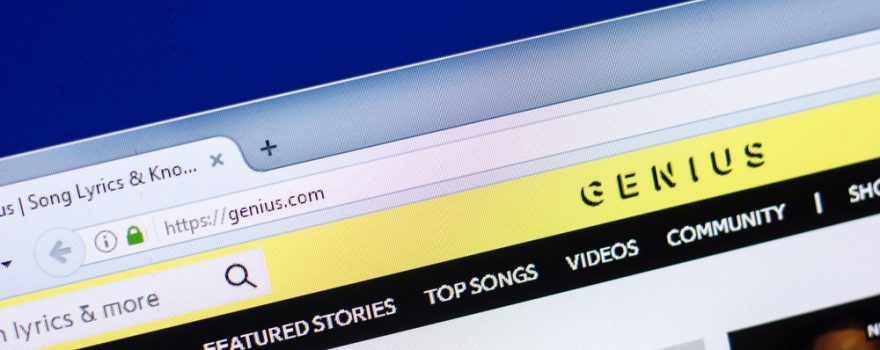
The US Supreme Court has refused to hear Genius’ lawsuit against Google, thus upholding the decisions of lower courts. Genius, a web resource that publishes song lyrics under a valid license, has been trying to prove since 2019 that Google is “stealing” its work. The search engine obtains lyrics from the LyricFind service, which Genius claims is copying its lyrics and licensing them to Google.
Genius’ original lawsuit failed in both the district and appeals court in 2020. District Judge Margo Brody ruled that Genius’ claims “override” U.S. copyright law, and a subsequent appeal was unsuccessful.
Ironically, Genius found itself on the verge of guilt. The company argued that by publishing the licensed lyrics, it had invested labor and resources in transcribing them, thereby claiming additional rights beyond the original copyright. However, the judge said Genius actually created unauthorized derivative works based on the originals, and its claims are substantially similar to copyright claims. The district court’s ruling said, “Defendants have unauthorized reproductions of plaintiff’s work, which in and of itself violates the owners’ exclusive right under federal copyright law.” In their appeal to the U.S. Supreme Court, Genius argued that the Copyright Act does not invalidate Google’s violation of the terms of use of their site’s material. They argued that the contractual restrictions defined in the agreement were not contrary to the law. Genius argued that the decision sets a dangerous precedent for companies that own licenses but not copyrights to content, undermining the contractual nature of such relationships.
In response, Google called the allegations disturbing hyperbole and supported the appeals court’s decision. The company stated: “The Second Circuit correctly held that Genius’s contract claims are equivalent to copyright infringement claims and therefore not actionable. Genius’s contract claims are disguised copyright claims. Genius seeks to enforce rights that are not only equivalent to, but virtually identical to, the rights set forth in Section 106 of the Copyright Act.”
The U.S. government scrutinized the case and urged the Supreme Court to dismiss the suit. According to the State Department, there were no material differences between the rights claimed by Genius and those protected under federal law. The government’s appeal also emphasized that Genius had not proven any contract expressly prohibiting Google from copying lyrics from their site. The appeal states, “[Genius] does not allege that defendants expressly promised not to copy lyrics from plaintiff’s website. To the contrary, according to plaintiff, any person who visits its website automatically becomes a contractual counterparty and agrees to the terms of service, regardless of whether the visitor is aware of the browsing agreement or any of its specific provisions.”
The U.S. Supreme Court’s decision to uphold previous verdicts shows its agreement with the conclusions reached by the lower courts.
Essentially, the ruling means that a company cannot assert copyright-like rights in a contract that was not mutually agreed upon. The legal precedent set by this case further emphasizes the importance of clear contractual agreements and the boundaries of copyright protection in online content sharing.

 Get in Touch
Get in Touch 


